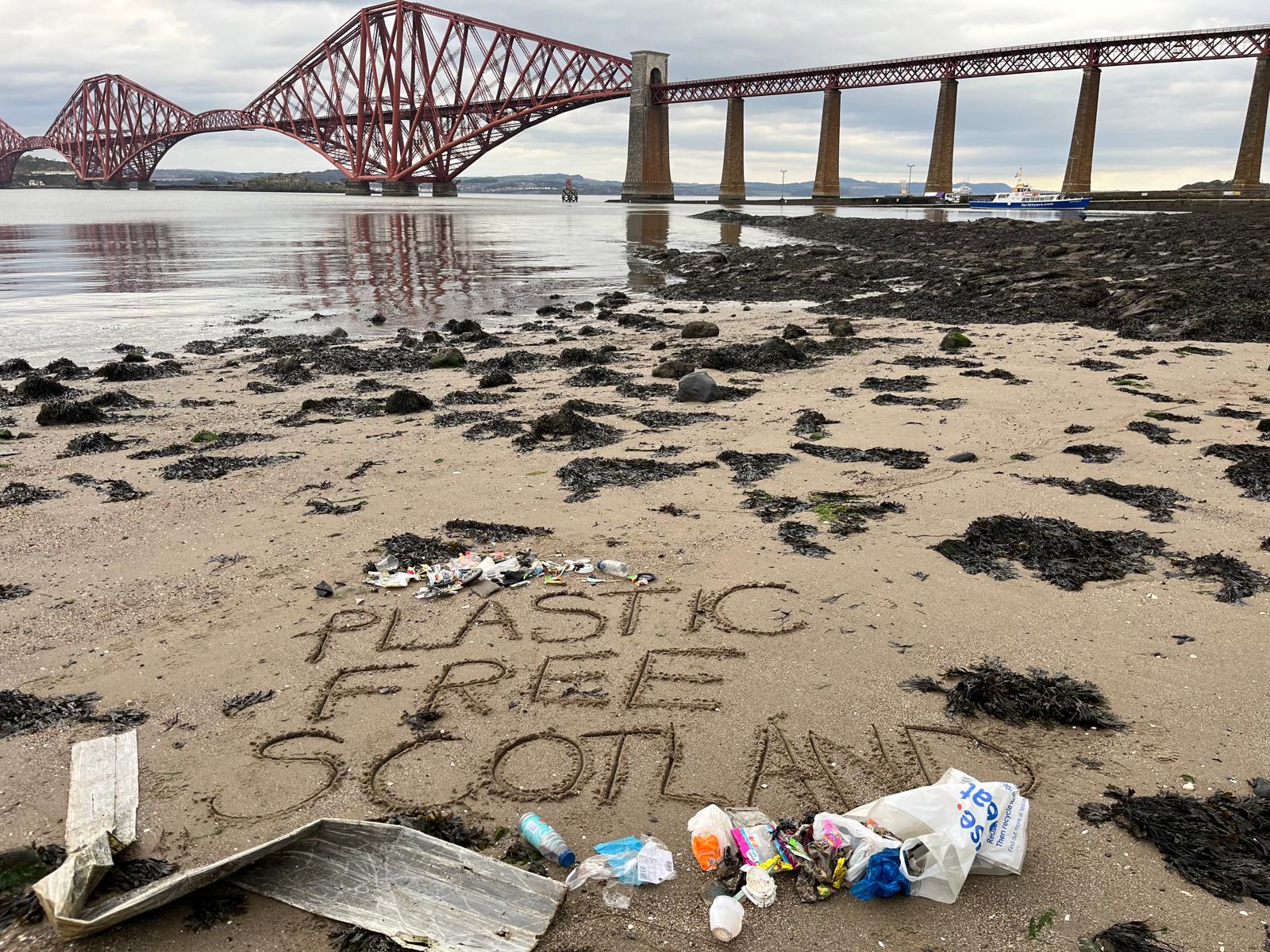
Civil society calls for Scottish Government to “make good on its promise” on plastic
Civil society organisations have written to the Scottish Government to call for it to support the Global Plastics Treaty, a worldwide agreement to end plastic pollution, which is being finalised in South Korea at the end of this year (25 November – 1 December). They say that this is needed to end the plastics crisis, which is harming people and nature and contributing to climate breakdown.
In an open letter to the First Minister, these groups, including Friends of the Earth Scotland and Marine Conservation Society, say Scotland must play its part by publicly supporting a legally binding international treaty and by taking action at home. Scotland’s position on the treaty is agreed at a UK Government level but the Scottish Government can strengthen this by showing its public support for the UK position.
Eight years ago today (29 October 2016), the Scottish Government, along with over 1000 other organisations, signed the Plastics Economy Global Commitment. The aim of this voluntary agreement was to end plastic packaging waste by 2025.
However, with the deadline just a few weeks away, almost no progress has been made and the plastic crisis continues to deepen. Globally, the amount of new plastic in packaging remains similar to 2018 levels: almost 12 million tonnes of plastic packaging is produced every year. In Scotland alone, it is estimated that over two million plastic bottles are sold every day.
Campaigners say that the new Global Plastics Treaty must address the root cause of the problem – how plastics are produced and sold. Global treaties have the power to make a significant impact. The Montreal protocol – the first treaty to be ratified by every country on Earth – has phased out the use of nearly 100 substances that attack the planet’s protective ozone.
The letter from the organisations is also asking the Scottish Government to support the treaty by committing to changes within Scotland. Like many rich countries, Scotland consumes huge amounts of plastic and it is this which is the ultimate driver of the plastics crisis. They say that rich countries must take the first steps on tackling plastic pollution by taking action at home, such as by investing in reuse programmes and making producers pay for the clean up of their plastic products.
Kim Pratt, Friends of the Earth Scotland said:
“Plastic causes climate-wrecking emissions, environmental damage and harms our health. The Scottish Government needs to make good on its promise to tackle the plastics crisis. The Scottish Government signed an agreement eight years ago, but they haven’t taken the action needed to tackle the cause of the plastic crisis which lies in the continual growth in production.
“With the world watching, governments must come together to create a commitment that does work. The Global Plastics Treaty has the potential to tackle the crisis head on, and the Scottish Government should show its strong support for this approach.
“It must also take real action at home to take responsibility for this problem. That means holding companies to account for the plastic products and packaging they sell and making sure everyone in Scotland has access to more sustainable choices to plastic products.”
